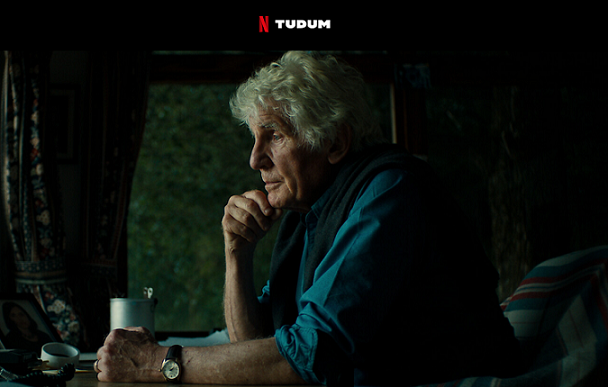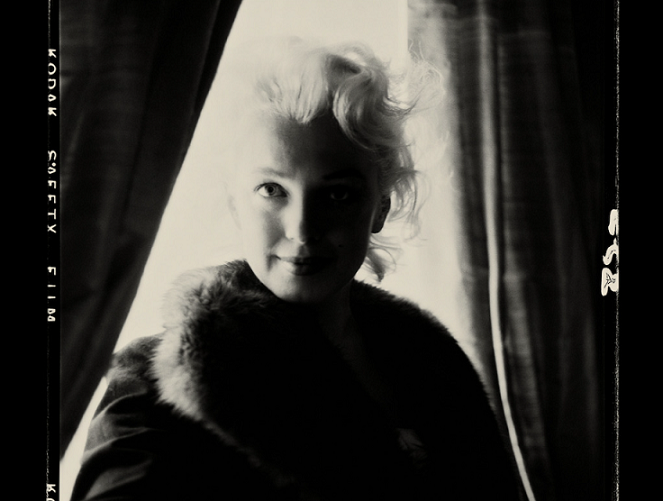
Anthony Summers, author of Goddess, explains how he shed light on the star’s death in a new documentary on Netflix
The decades-long controversy surrounding Marilyn Monroe’s death is the crux of The Mystery of Marilyn Monroe: The Unheard Tapes. The new documentary introduces another piece of the puzzle to the public — audiotapes of Monroe’s closest friends, colleagues and others discussing the circumstances of her demise.
The tapes in question — never before heard by the public until now — belong to journalist Anthony Summers, author of the book Goddess: The Secret Lives of Marilyn Monroe, upon which the documentary is based.
A former BBC reporter with a war-reporting background, Summers looked into Marilyn’s death after the Los Angeles district attorney reopened the case in 1982. It turned into a three-year-long project for which Summers interviewed 650 people.
Goddess was first published in 1985 (with several updated editions released since then), but it’s Summers’ detailed reporting that has given the book a unique kind of longevity and modern relevance. And it’s his original audio recordings of those interviews that are a focal point of The Mystery of Marilyn Monroe. The documentary’s director, Emma Cooper, praised Summers’ storytelling ability, comparing him to the literary legend Gay Talese and saying his “attention to detail is extraordinary.”
Not only an exhaustive reporter, Summers is also a prolific one. He’s written 10 nonfiction books on such prominent mid-20th-century figures as J. Edgar Hoover and Richard Nixon. His book on 9/11 was a Pulitzer Prize finalist.
Below, Summers gives Tudum insight into his reporting on Monroe’s death, the most difficult interview he managed to get and his thoughts on Marilyn’s life as a “sex goddess” before her death at 36.
In your years of research, what is the most striking thing you discovered about Marilyn?
I think because she was a “sex goddess,” pinup girl, etc., it came as a surprise back in the ’80s — and a pleasing surprise — to discover that this woman, although very unhappy and somebody who — more, perhaps, than an awful lot of people — got it “wrong” in life, but, nevertheless, was no fool. She was nobody’s fool. Having had no education, virtually, she was a very aware person who made herself politically aware, came up with quite insightful comments in political conversations and tried to improve herself throughout her life.
She kept little notebooks, little journals on which she made notes all the time. And she was a voracious reader, a terrific reader. [She] was a really thoughtful, intelligent woman… She played along with the effort to create her as a cardboard-cutout figure, while at the same time, in private life, doing everything she could to make sure she wasn’t a cardboard-cutout figure.
When you began looking for clues and trying to talk to people who knew her, a lot of doors were shut in your face. What prompted you to keep digging?
[You c]ome back, and you push it again, and you push it until the door opens. That applied to many interviews in the Monroe case [with] people who had known her. Remember, in the ’80s, it was only 20 years since she died, and people who were friends or intimates still felt uneasy talking about her, particularly when so many rags and flashy magazines had exploited her when she was alive. But by the ’80s, most of them were beginning to open up, because they themselves were older and they could begin to see it in perspective. I think that in the end, very few doors remain closed to me. By the time I finished, I interviewed 650 people.
The Mystery of Marilyn Monroe: The Unheard Tapes. Watch the Official Trailer HERE
Did you discover something about Marilyn through her own words or writing that reshaped how you thought about her or reshaped how you understood how she thought about herself?
I think I didn’t really have an impression before starting this work… When I was initially delving into the subject, I had been hired to look into the way that the case was being re-investigated by the district attorney’s office in Los Angeles. And then I gradually eased into the subject and realized that in order to understand her and her death, you had to look at her whole life.
I, quite early on, had a major break in managing to get through to the family of Marilyn’s last psychiatrist on the West Coast. That was Dr. [Ralph] Greenson. And his widow was extremely receptive when I went to see her as was Dr. Greenson’s daughter. Mrs. Greenson, though — the widow — gave me access to the letters that Dr. Greenson had written to Marilyn’s East Coast New York psychiatrist. That immediately… gave me insight into what these psychiatrists, who spent hour after hour with her, what their judgment was of her. Psychiatrists aren’t always right, but they were both compassionate doctors, and what they had written to each other taught me a great deal about her.
How much agency do you think Marilyn had in her own life?
That’s a very difficult question to answer. She was in the hands of the studio. Of course, like all of [the stars of that era], or almost all of them, she could not be her own woman. There was someone pulling her strings all the time. She wanted the fame. She wanted success. She wanted success in private life with the men that she married. I think she came closest to it with the playwright Arthur Miller. But he, just as much as she, I believe, was perhaps responsible for the fact that that marriage failed, as all her relationships failed in the end.
She was dogged by Hollywood, but I think that in any life she led, this was a woman whose personality was so frail that she might well have come to a dusty end, even if she had an ordinary — what we call ordinary — civilian life. The pressures of it all, and the pressures on her as someone created as a model for sexual femininity that doesn’t really exist, were just almost impossible for her to survive.
Your book Goddess was published in 1985, and it has transcended mediums and decades. Are you surprised or unsurprised by the longevity of your reporting?
Well, I suppose I’m as vain as anybody else, so I think that I, more or less, got it right. Nobody has found a serious mistake in the research. There was so much that was sensational about her life, not to mention her affairs with the Kennedys before she died, and then the death itself. One didn’t need to exaggerate, one had to do really thorough research, use only the facts that fitted together, like a jigsaw, and be compassionate. I think that maybe people feel that I treated my subject compassionately, and that it is, of the 10 books I’ve written, perhaps one of those of which I’m still cautiously proud.
What was the most difficult interview for you to get that aired in the documentary?
I think the hardest part of the book inevitably was going to be the end of her life, because there had been so many sensational and, in many cases, purely gossipy or malicious, sometimes, versions of what had happened to her at the end of her life.
I think what I’ve published — particularly what I’ve published in the most recent edition of the book about the covert eavesdropping on her, in the hope of getting dirt, not on her, but on the Kennedy brothers — was the information I had to be most careful about. Because if you are talking about eavesdroppers, people who are bugging telephones, creeping around sticking microphones in the corners of people’s living rooms and so on, in many cases, you are not dealing with angels.
And so, it has been crucial to get information independently from a significant number of people that fit together. And I think I did, in the end, get that information. It took months and months and a lot of very careful research and making sure one person didn’t know that I was also approaching another person so that I got independent testimony. As a journalistic operation, that was probably the hardest thing that I did.
At the beginning of the documentary, you talk about your 650 interviews, and you say, “I hope I’ve not got obsessed.” Do you think you did, though?
I certainly hope I’m not obsessed. [But] you have to be obsessed in the course of writing a book. If, after years on from a book of mine having been published, somebody challenges what I’ve written, if they’re right and I’ve got it wrong, then I hope I always accept it. I have, on occasion, gotten things wrong. And if it’s something that comes up years later that contributes more to the research that I’ve already done, and, if the book is coming out in another edition, then I think I owe it to the reader to include that.
I like to think that, probably, I’ve given readers the most accurate picture of Marilyn as a woman and of the mysteries that have surrounded her end that is possible.
This interview has been edited and condensed for length and clarity.
Source:Tudum
Written by By Jamie Beckman


